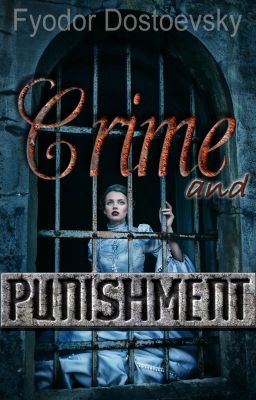˖༶˚✦classics & philosophy✦˚༶˖
16 stories
A LITTLE PRINCESS (Completed)
FrancesEHBurnett
- Reads 3,985
- Votes 289
- Parts 19
A Little Princess is a children's novel by Frances Hodgson Burnett, first published as a book in 1905. It is an expanded version of the short story "Sara Crewe: or, What Happened at Miss Minchin's", which was serialized in St. Nicholas Magazine from December 1887.
The novel was published by Charles Scribner's Sons (also the publisher of St. Nicholas) with illustrations by Ethel Franklin Betts and the full title A Little Princess: Being the Whole Story of Sara Crewe Now Being Told for the First Time.
Heart of Darkness (1899)
JosephConrad
- Reads 14,631
- Votes 208
- Parts 3
Heart of Darkness is a short novel written by Joseph Conrad, presented as a frame narrative, about Charles Marlow's job as an ivory transporter down the Congo River in Central Africa. In the course of his commercial-agent work in Africa, the seaman Marlow becomes obsessed by Mr. Kurtz, an ivory-procurement agent, a man of established notoriety among the natives and the European colonials.
PARADISE LOST (Completed)
johnmilton
- Reads 3,574
- Votes 123
- Parts 12
Paradise Lost is an epic poem in blank verse by the 17th-century English poet John Milton (1608-1674). The first version, published in 1667, consisted of ten books with over ten thousand lines of verse. A second edition followed in 1674, arranged into twelve books (in the manner of Virgil's Aeneid) with minor revisions throughout and a note on the verification.
It is considered by critics to be Milton's major work, and it helped solidify his reputation as one of the greatest English poets of his time.
The poem concerns the biblical story of the Fall of Man: the temptation of Adam and Eve by the fallen angel Satan and their expulsion from the Garden of Eden. Milton's purpose, stated in Book I, is to "justify the ways of God to men".
PARADISE REGAINED (Completed)
johnmilton
- Reads 396
- Votes 26
- Parts 4
Paradise Regained is a poem by English poet John Milton, first published in 1671 by John Milton. The volume in which it appeared also contained the poet's closet drama Samson Agonistes. Paradise Regained is connected by name to his earlier and more famous epic poem Paradise Lost, with which it shares similar theological themes; indeed, its title, its use of blank verse, and its progression through Christian history recall the earlier work.
However, this effort deals primarily with the temptation of Christ as recounted in the Gospel of Luke.
+2 more
The Little Prince
ElysaWinkee
- Reads 14,994
- Votes 434
- Parts 26
The main character of the story is the Little Prince.
He arrived from a small distant planet. He had been travelling to different planets and finally he reached the Earth. Here he met the second character...
Dracula (1897)
BramStoker
- Reads 346,842
- Votes 6,791
- Parts 27
Famous for introducing the character of the vampire Count Dracula, "Dracula" tells the story of Dracula's attempt to move from Transylvania to England, and the battle between Dracula and a small group of men and women led by Professor Abraham Van Helsing.
THE ILIAD (Completed)
Homer
- Reads 24,870
- Votes 360
- Parts 26
The Iliad (sometimes referred to as the Song of Ilion or Song of Ilium) is an ancient Greek epic poem in dactylic hexameter, traditionally attributed to Homer. Set during the Trojan War, the ten-year siege of the city of Troy (Ilium) by a coalition of Greek states, it tells of the battles and events during the weeks of a quarrel between King Agamemnon and the warrior Achilles.
The Iliad is paired with something of a sequel, the Odyssey, also attributed to Homer. Along with the Odyssey, the Iliad is among the oldest extant works of Western literature, and its written version is usually dated to around the 8th century BC. Recent statistical modelling based on language evolution gives a date of 760-710 BC.
NOTES FROM THE UNDERGROUND (Completed)
FydorDostoevsky
- Reads 17,849
- Votes 582
- Parts 22
Notes from Underground, also translated as Notes from the Underground or Letters from the Underworld, is an 1864 novella by Fyodor Dostoyevsky. Notes is considered by many to be one of the first existentialist novels. It presents itself as an excerpt from the rambling memoirs of a bitter, isolated, unnamed narrator (generally referred to by critics as the Underground Man) who is a retired civil servant living in St. Petersburg. The first part of the story is told in monologue form, or the underground man's diary, and attacks emerging Western philosophy, especially Nikolay Chernyshevsky's What Is to Be Done?
The second part of the book is called "Apropos of the Wet Snow" and describes certain events that appear to be destroying and sometimes renewing the underground man, who acts as a first person, unreliable narrator and anti-hero
CRIME AND PUNISHMENT (Completed)
FydorDostoevsky
- Reads 87,669
- Votes 2,273
- Parts 42
Crime and Punishment is a novel by the Russian author Fyodor Dostoevsky. It was first published in the literary journal 'The Russian Messenger' in twelve monthly installments during 1866. Later, it was published in a single volume. It is the second of Dostoevsky's full-length novels following his return from 5 years of exile in Siberia. Crime and Punishment is considered the first great novel of his "mature" period of writing.
Crime and Punishment focuses on the mental anguish and moral dilemmas of Rodion Raskolnikov, an impoverished ex-student in Saint Petersburg who formulates a plan to kill an unscrupulous pawnbroker for her money. Before the killing, Raskolnikov believes that with the money he could liberate himself from poverty and go on to perform great deeds; but confusion, hesitation, and chance muddy his plan for a morally justifiable killing.
Cover made by the amazing Amber @The3dreamers.









